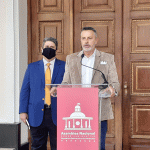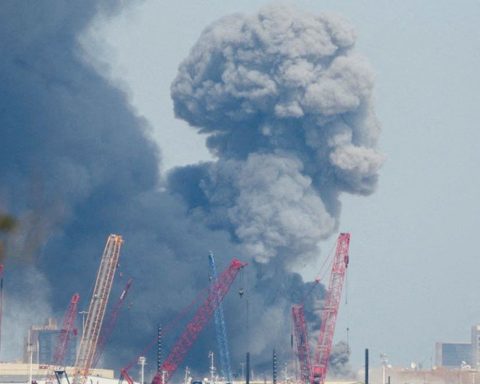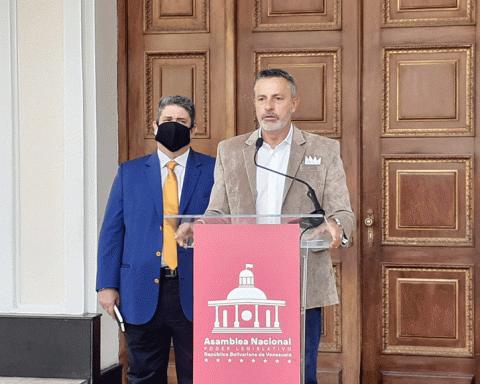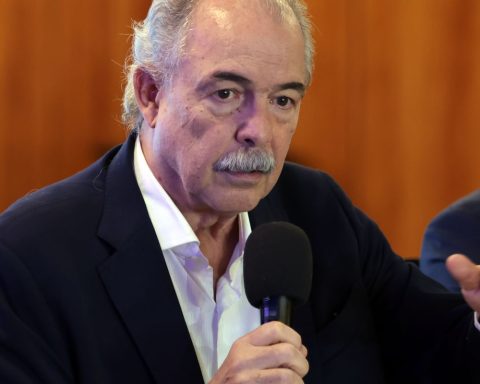In the municipalities of San Sebastián de Yalí, Santa María de Pantasma, El Cuá, Murra and El Almendro, whose mayoralties were usurped by the Sandinista National Liberation Front (FSLN) four months before the “municipal electoral farce”, the disinterest of the population was expressed in the same questioned data from the Supreme Electoral Council (CSE), which shows that the total number of votes cast fell by more than 20% between 2017 and 2022.
The CSE affirms that there was a participation of 57.5% of the population in the local elections on November 6. On the other hand, the Urnas Abiertas body calculates that only 17.3% of the population participated. In other words, the CSE would be “inflating” the data by more than 40%, but even with that, participation in five municipalities seized from the opposition was low.
Official data from the Supreme Electoral Council (CSE) –which lack credibility and are not auditable– show that in these five municipalities the total number of votes cast fell from 63,053 in 2017 to 49,811 in 2022, which means 13,242 fewer votes, equivalent to 21%.
The reduction in citizen participation, which not even the disputed CSE data managed to hide, indicates that the FSLN was awarded these five traditionally opposition municipalities with less participation, due to the number of citizens who refused to participate in the “electoral farce.” , with which the government party took control of 100% of the 153 mayors’ offices in Nicaragua.
On a case-by-case basis, the percentage of abstention is higher in two of the five territories previously governed by the canceled opposition party Citizens for Freedom (CxL). One is about San Sebastian de Yaliwhere the votes cast according to the CSE were 9,539, compared to 14,544 in 2017, which represents 5005 fewer votes, equivalent to 34.41%. The second is Murrawhere they also went from 7,663 votes in 2017 to 5,581 in 2022, equivalent to a reduction of 27.17%.
In the case of the almond tree the decrease was from 5,330 in 2017 to 4,183 this year, which corresponds to 21.52%. Similarly, in El Cua The total number of votes cast decreased from 18,594 in the municipal elections in 2017 to 15,901 on November 6, which indicates a reduction of 14.48%. Similar happened andn Santa Maria de Pantasma where the votes cast, according to the CSE, fell from 16,922 in 2017 to 14,607 in 2022, equivalent to 13.68%.
On the other hand, the gap between the votes deposited and the valid votes is not very large, according to the CSE data, since in both elections the number of invalid votes in 2017 it was 2788 (4.4%) and in 2022 it was 2006 (4%).
These five municipalities They were administered by the Ciudadanos por la Libertad (CxL) party, which won the 2017 municipal elections and whose legal status was canceled in 2021, but the regime of Daniel Ortega and Rosario Murillo did not respect universal suffrage and municipal governments were assaulted manu militari last July by the FSLN.
Results without transparency
The Open Ballot Box citizen observatory denounced this November 14 that the data published by the CSE this Monday in the Official Gazette La Gaceta, were “manipulated”, since they do not coincide with the scrutiny records and results posters of boards and municipalities reported by the Municipal Electoral Councils (CEM).
“In several cases, the CSE has reported a greater number of votes than those reported by the CEM in the closures of the municipalities, especially for the collaborationist parties, which shows that they manipulate the data with the intention of assigning certain councilors to their parties. satellites, as well as to increase the reimbursement they will receive, all as a reward for their participation in a process devoid of guarantees. For parties such as APRE, PLI and ALN, it was observed that the votes were inflated up to 10 times their actual result, in some municipalities”, pointed out Urnas Abiertas.
According to the body, the total votes (in percentages and absolute numbers) presented by the CSE “do not allow for an adequate audit”, since the information is not presented by Voting Center or by Vote Receiving Boards, nor is it possible to review the minutes on their website.
“A lesson in civility and hope”
The sociologist and specialist in municipal issues, Silvio Pradohe assessed in an interview on the program This week, that the decision of the population to abstain from voting —mainly in the municipalities that were not controlled by the FSLN— means “a slam in the face” to the regime and its “municipal electoral farce” in which there was no political competition and the FSLN was awarded the 153 mayoralties of the country.
“I think it is a lesson in civility and hope for the population because it is the population that wants self-government, which is an issue that must be emphasized. with these choices the last loopholes of self-government in the country are gone, It’s over, there are no longer authorities that are going to exercise their public function thinking about their own decisions, ”Prado stressed.
For the sociologist, the awarding of 100% of the country’s mayoralties to the FSLN ended the last loopholes of “self-government” that existed in the country and established a de facto one-party systemby eliminating any possibility that another party governs in the municipalities historically opposed to the Ortega and Murillo regime.
According to Urnas Abiertas, made up of a multidisciplinary team and volunteers, in the voting on November 6 the level of abstention was 82.67%, based on a study carried out in 366 voting centers out of the 3106 authorized, with a confidence level of 95% and a margin of error of 5%.
The data from the CSE, for their part, indicate a percentage of abstention of 42.5%, indicating a participation of 2,108,003 Nicaraguans out of the 3,722,884 Nicaraguans who were summoned to vote, in a country of 6.6 million inhabitants.

















